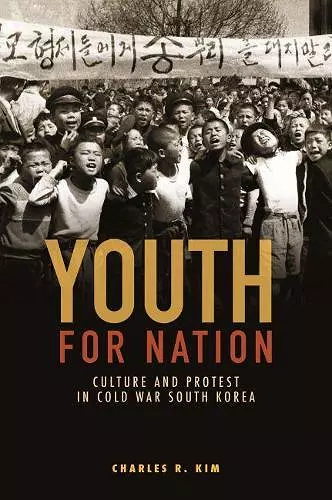Youth for Nation
Culture and Protest in Cold War South Korea
Format:Hardback
Publisher:University of Hawai'i Press
Published:30th Jun '17
Currently unavailable, and unfortunately no date known when it will be back

This in-depth exploration of culture, media, and protest follows South Korea’s transition from the Korean War to the political struggles and socioeconomic transformations of the Park Chung Hee era. Although the post-Korean War years are commonly remembered as a time of crisis and disarray, Charles Kim contends that they also created a formative and productive juncture in which South Koreans reworked pre-1945 constructions of national identity to meet the political and cultural needs of postcolonial nation-building. He explores how state ideologues and mainstream intellectuals expanded their efforts by elevating the nation’s youth as the core protagonist of a newly independent Korea. By designating students and young men and women as the hope and exemplars of the new nation-state, the discursive stage was set for the remarkableoutburst of the April 19th Revolution in 1960.
Kim’s interpretation of this seminal event underscores student participants’ recasting of anticolonial resistancememories into South Korea’s postcolonial politics. This pivotal innovation enabled protestors to circumvent the state’s official anticommunism and, in doing so, brought about the formation of a culture of protest that lay at the heart of the country’s democracy movement from the 1960s to the 1980s. The positioning of women as subordinates in the nation-building enterprise is also shown to be a direct translation of postwar and Cold War exigencies into the sphere of culture; this cultural conservatism went on to shape the terrain of gender relations in subsequent decades.
A meticulously researched cultural history, Youth for Nation illuminates the historical significance of the postwar period through a rigorous analysis of magazines, films, textbooks, archival documents, and personal testimonies. In addition to scholars and students of twentieth-century Korea, the book will be welcomed by those interested in ColdWar cultures, social movements, and democratization in East Asia.
ISBN: 9780824855949
Dimensions: unknown
Weight: 520g
304 pages